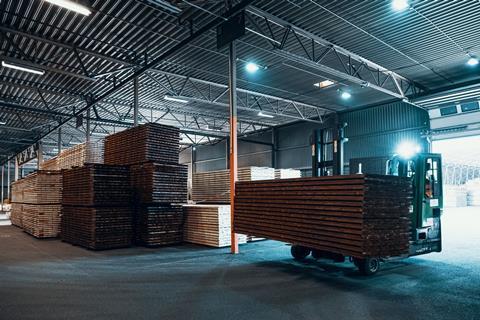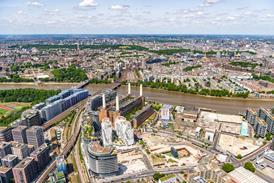Norwegian wood producer spoke out on the imperative step needed to address the global challenge of deforestation

Norman Willemsen, chief executive officer at Norwegian wood producer Kebony, spoke out in support of the European Commission’s President Ursula von der Leyen.
Von der Leyen called for Europe to “address the global challenge of deforestation by giving people a sustainable alternative,” and help save up to 40% of global carbon emissions by building with timber instead of concrete.
Willemsen stated: “The international community is now recognising the absolute need to build with sustainable and sustainably sourced materials. We must halt our dependence on heavy pollutants and materials which are directly triggering mass deforestation of our vital rainforests and follow the pathway set out by the European Commission, and globally, to ensure sustainable wood is accepted as the new industry norm.”
The statement came just weeks after five more common hardwoods, including Ipe and Cumaru, were formally listed in CITES (Convention on International Trade in Endangered Species of Wild Fauna and Flora) Appendix II. The addition means they will now be safeguarded against deforestation, with closer controls over trading enforced.
Easing global dependence on common hardwoods is central to Kebony’s mission. Utilising a patented wood modification technology, Kebony produces a wood that according to the manufacturer is both environmentally friendly and cost-effective.

By transforming softwood species such as pine into Kebony wood with features that are comparable to those of tropical hardwoods, the company hopes to reduce the need for deforestation and help protect vital carbon sinks like the Amazon.
Willemsen said: “Building with sustainable timber should become the new normal for architects, developers and end customers looking to make an effective and positive change to what has become a heavily polluting industry. Despite years of warnings, fears remain that significant damage to our world and environment may be inescapable.”
Willemsen added: “In large parts of the world, it is undeniable that the construction sector is heavily polluting and remains largely unsustainable, with the value chain from materials through to operations accounting for over one-third of annual greenhouse gas emissions. Soon, it will become imperative for all built environment professionals to meet sustainability targets. For them to succeed, it is vital that sustainable solutions and alternatives are effective, comparable (if not better) than their counterparts, attractive, durable, and affordable.”














![Tarmac launches CEVO Asphalts Carbon Calculator for instant data on embodied carbon of asphalt mixes 02[87].jpg](https://d3rcx32iafnn0o.cloudfront.net/Pictures/100x67/9/7/6/2023976_tarmaclaunchescevoasphaltscarboncalculatorforinstantdataonembodiedcarbonofasphaltmixes0287.jpg_435882.jpg)

No comments yet